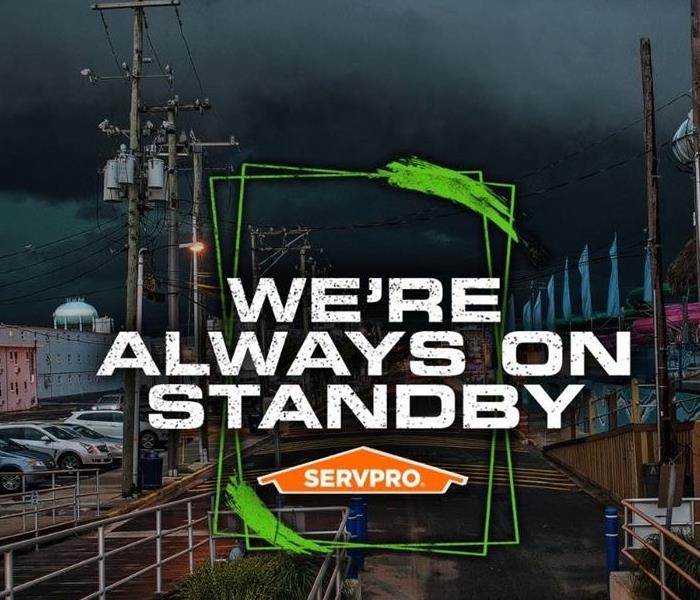Having a plan for when serve storms strike.
12/28/2021 (Permalink)
Storms can bring devastation to our area. It is always important for you and your family to have a plan for when devastating storms are coming.
- Write down emergency phone numbers and keep them on the refrigerator or near every phone in your house.
- Prepare an supply kit
- Locate the nearest shelter and different routes you can take to get there from your home.
- Pet owners: Pre-identify shelters, a pet-friendly hotel, or an out-of-town friend or relative where you can take your pets in an evacuation.
Gather emergency supplies.
During and after a storm, you may need supplies to keep your family safe and healthy. Remember that a storm could cut off your power and water supply. You also may not be able to drive because of damage to your car. Roads may be flooded or blocked.
That’s why it’s best to be prepared—stock up on everything you might need now. Be sure to prepare the following:
- Food and Water.
- Medical supply
- Emergency power (Generators)
- Medical documents, wills, passports, and personal identification.
- A fire extinguisher. Make sure your family knows where to find it and how to use it!
Get your car ready.
Make sure your car is ready before the storm hits.
- Fill your car’s gas tank.
- Move cars and trucks into your garage or under cover.
- Always keep an emergency kit in your car.
If you don’t own a car, consider making plans with friends or family or call authorities to get a ride if you need to evacuate.
Get your home ready.
- Clear your yard. Make sure there’s nothing that could blow around during the storm and damage your home. Move bikes, lawn furniture, grills, propane tanks, and building material inside or under shelter.
- Cover up windows and doors. Use storm shutters or nail pieces of plywood to the outside window frames to protect your windows. This can help keep you safe from pieces of shattered glass.
- Be ready to turn off your power. If you see flooding, downed power lines, or you have to leave your home, switch your power off.
- Fill clean water containers with drinking water. You’ll want to do this in case you lose your water supply during the storm. You can also fill up your sinks and bathtubs with water for washing.
- Check your carbon monoxide (CO) detector’s battery
Be ready to evacuate or stay at home.
Always listen to authorities regarding whether you should evacuate or stay at home.
If a storm is coming, you may hear an order from authorities to evacuate (leave your home). Never ignore an order to evacuate. Even sturdy, well-built houses may not hold up against a serve storm. Staying home to protect your property is not worth risking your health and safety.
You may hear an order to stay at home. If driving conditions are dangerous, staying at home might be safer than leaving.
- Keep your emergency supply kit in a place you can easily access.
- Listen to the radio or TV for updates on the storm
- Stay inside. Even if it looks calm, don’t go outside. Wait until you hear or see an official message that the hurricane is over. Sometimes, weather gets calm in the middle of a storm but then quickly gets bad again.
- Stay away from windows—you could get hurt by pieces of broken glass or flying debris during a storm. Stay in a room with no windows, or go inside a closet.
- Be ready to leave. If emergency authorities order you to leave or if your home is damaged, you may need to go to a shelter or a neighbor’s house.
Remember we are always here to help. Give us a call if you suffer from storm damage.






 24/7 Emergency Service
24/7 Emergency Service
